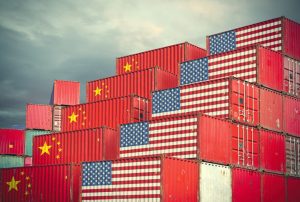The Trend Is Not Your Friend
The comments below are an edited and abridged synopsis of an article by Jim Kunstler
The collapse of China-US trade negotiations may mark the day that the global economy died. The orgy of bargain shopping ran about 30 years, with China pumping out cheap consumer goods to feed the US customer. Americans payed for it with IOUs and thought it would last forever.

But energy flows dictated capital flows. By the mid-1980s, the non-OPEC world was swimming in oil from the Alaska North Slope and the North Sea. Twenty years later, they were running out. Meanwhile, the US had offshored its factories in the (mistaken) belief that it had entered a new digital economy of virtual business. China became the world’s workshop, and the US became the world’s financial bucket-shop. The result was the financial crisis of 2008, which coincided with oil rising to over $140 a barrel (six months later it crashed, with the economy, to under $30).
The recovery from that was based on Wall Street’s premier swindle: shale oil, based on high-risk lending to companies that couldn’t make money even while exceeding the 1970 oil production peak of around 10 million barrels a day.
The China-US trade impasse will crash the US economy, and it will also crash the price of shale oil back to levels that destroy oil companies. The rise of shale was swift, and its fall will also be fast. The Feds may have to bail it out or nationalize it: not so good for the US dollar.
The China-US trade relationship cannot be repaired. The conflict set in motion will unleash an animus against the US that has been building for years. The Fed has painted itself into a corner with interest rate suppression and market manipulations. Bad weather in the American breadbasket says rising food prices, and less to export (or give away).
There is enough tension in the world as it faces not just the end of a global trade fiesta, but a world-wide synchronized economic depression. This is the one from which there will be no recovery, only adaptation to lower standards of living and new arrangements for getting by. In other words, the contraction will be permanent.

